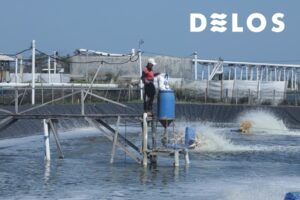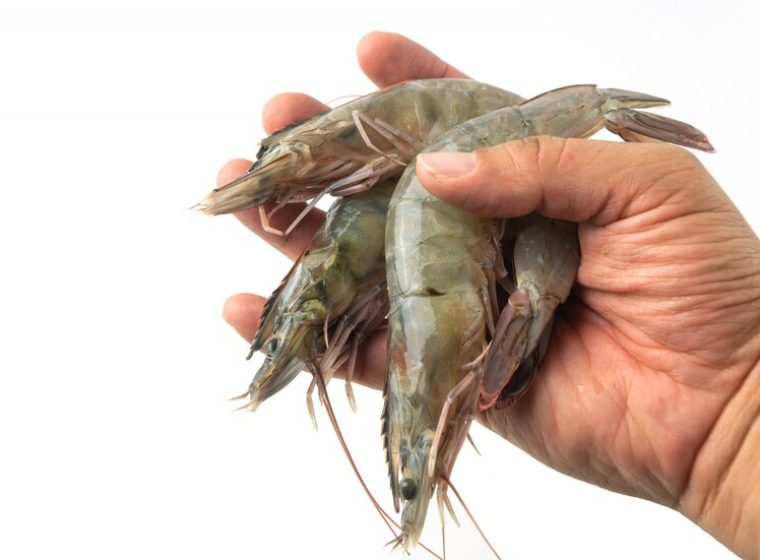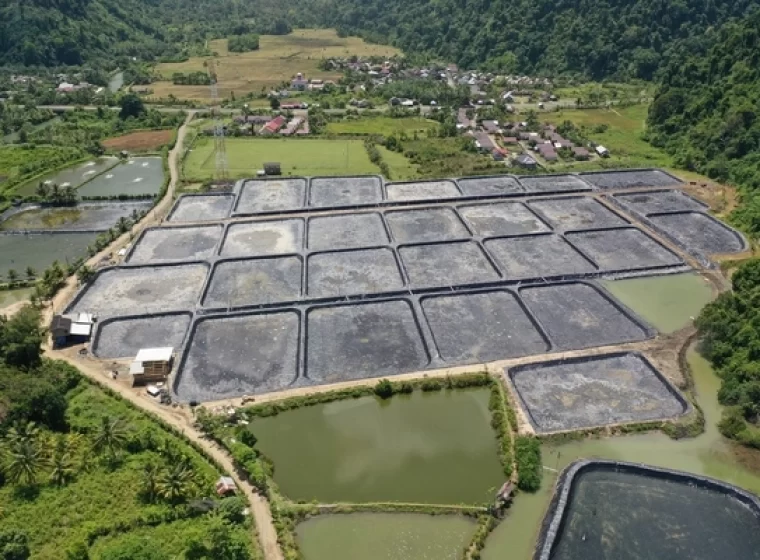
CBIB certification, which stands for Good Aquaculture Practices, is one of the certifications that supports your vannamei shrimp farming practices. This certification aims to ensure responsible aquaculture practices in terms of food safety, welfare, health, environmental sustainability, and socio-economic aspects.
CBIB certification is a part of the Quality Assurance and Safety Assurance System for Fishery Products (SJMKHP). It is based on the Minister of Marine Affairs and Fisheries Decree No. KEP. 02/MEN/2007 on Good Shrimp Farming Practices, including how to care for and raise fishery commodities. This covers processes such as hatchery, feeding, sanitation, and the use of medicines or chemicals.
So, how can you obtain CBIB certification for your shrimp farm? Read more in this article!
Also Read: Toxic Substances in Shrimp Ponds: Hidden Threats to Shrimp Survival
The Function of CBIB Certification in Shrimp Farming
The Good Aquaculture Practices (CBIB) certification serves as an official recognition given to shrimp farmers and aquaculture entrepreneurs who adhere to good aquaculture practices.
With an objective and transparent CBIB certification, producer and consumer trust can increase. It can also enhance the competitiveness of the shrimp products produced.
Benefits of Having CBIB Certification
You might be wondering about the benefits of having CBIB certification. Having a CBIB certificate indirectly increases the value of your shrimp farm by ensuring its safety and supporting environmental sustainability.
With this high value, the selling price of your shrimp harvest can also increase compared to farms without certification, considering their certified quality.
Legal Basis for CBIB Certification
- Minister of Marine Affairs and Fisheries Regulation No. PER.1/MEN/2007 on Control of the Quality Assurance and Safety Assurance System for Fishery Products
- Minister of Marine Affairs and Fisheries Regulation No. PER.02/MEN/2007 on Monitoring Residues of Drugs, Chemicals, Biological Substances, and Contaminants in Aquaculture
- Minister of Marine Affairs and Fisheries Decree No. KEP.02/MEN/2007 on Good Fish Farming Practices
- Minister of Marine Affairs and Fisheries Decree No. KEP.28/MEN/2004 on General Guidelines for Shrimp Farming in Ponds
- Director General of Aquaculture No.01/DPB.0/HK150.154/S4/II/2007 on Guidelines and Forms for Good Aquaculture Practices Certification
- Indonesian National Standards (SNI) in the field of aquaculture.
Also Read: Get to Know Shrimp PCR, an Early Disease Identification Solution
Aspects to Consider in Implementing CBIB
1. Site and Water Source Suitability
To obtain CBIB certification, your shrimp farm must be located in a suitable place. It should be free from flooding, pollution, and use uncontaminated water sources.
2. Facility Suitability
Your shrimp farm facilities must also comply with applicable standards, including the presence of feed storage, suitable farming equipment, and more.
3. Cultivation Process
Shrimp cultivation processes should adhere to Indonesian National Standards (SNI) from stocking to harvesting. For instance, post-larvae must come from certified hatcheries.
4. Biosecurity Implementation
Your shrimp farm should implement good biosecurity measures to prevent contamination by organisms and other pathogens that could disrupt the cultivation process.
5. Farm Security
According to regulations, shrimp farms with CBIB certification should not use excessive drugs or prohibited chemicals. This includes antibiotics that can have adverse effects on the environment.
Only feed and medicines approved by the Ministry of Marine Affairs and Fisheries and relevant authorities can be used.
6. Environmental Aspects
Environmental aspects ensure that your shrimp farming activities do not harm the surrounding environment. Proper wastewater management is one way to achieve this before releasing it back into the sea.
How to Obtain CBIB Certification
To obtain CBIB certification, you need to submit an application with the following requirements:
- The CBIB Certification application should be addressed to the Head of the Provincial Marine and Fisheries Service, accompanied by administrative documents and copied to the Head of the District/City Marine and Fisheries Service. Administrative documents include:
- Copy of Fisheries Business License (SIUP) for legal entities or registration/certification information for individual fish farming units.
- General information about the fish farming unit.
- A list of the fish farming unit’s facilities.
- Records of fishery product farming activities.
- Number and educational background of the fish farming unit’s workforce (organizational structure and job descriptions, for groups or companies).
- Layout drawings of buildings, maps, and the surrounding conditions for fishery product farming.
- Applicants (fish farming units) must meet the following requirements:
- The scale of the business can be individual, fish farming groups (POKDAKAN), or companies producing consumption fish for local and export markets.
- Have conducted fish farming for at least one cultivation cycle.
- Fish farming activities at the hatchery or grow-out stage.
- Applications can be submitted in person or through mail, fax, or email.
Also Read: Types of Feed Additives for Vannamei Shrimp and Their Benefits
Start Your Vannamei Shrimp Farming with DELOS!
Having CBIB certification for your shrimp farming demonstrates your commitment to implementing good farming practices in line with standards. Considering that aquaculture is now a crucial industry in meeting global seafood consumption needs.
For those looking to start vannamei shrimp farming, DELOS can be your best partner in shrimp farming. DELOS is a science, technology, and operational management-based aqua-tech company that can help you explore new opportunities in aquaculture.
DELOS is also supported by the AquaHero application, which makes it easier for farm owners and personnel to monitor their shrimp farms daily.
Contact the DELOS team at contact@delosaqua.com or visit our website at www.delosaqua.com to learn more about our services. Begin your vannamei shrimp farming journey with DELOS!




